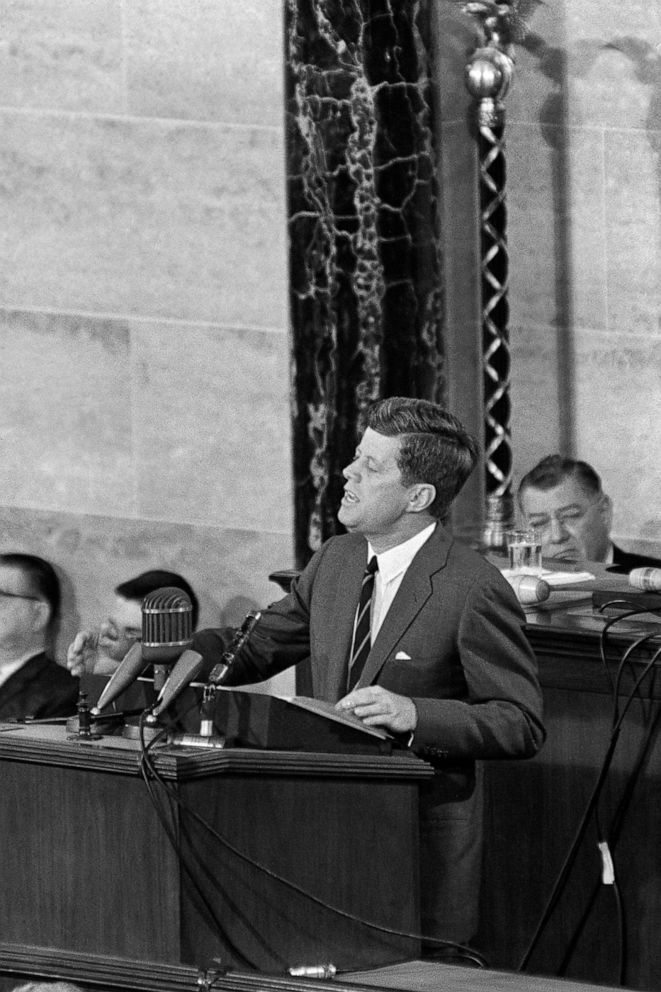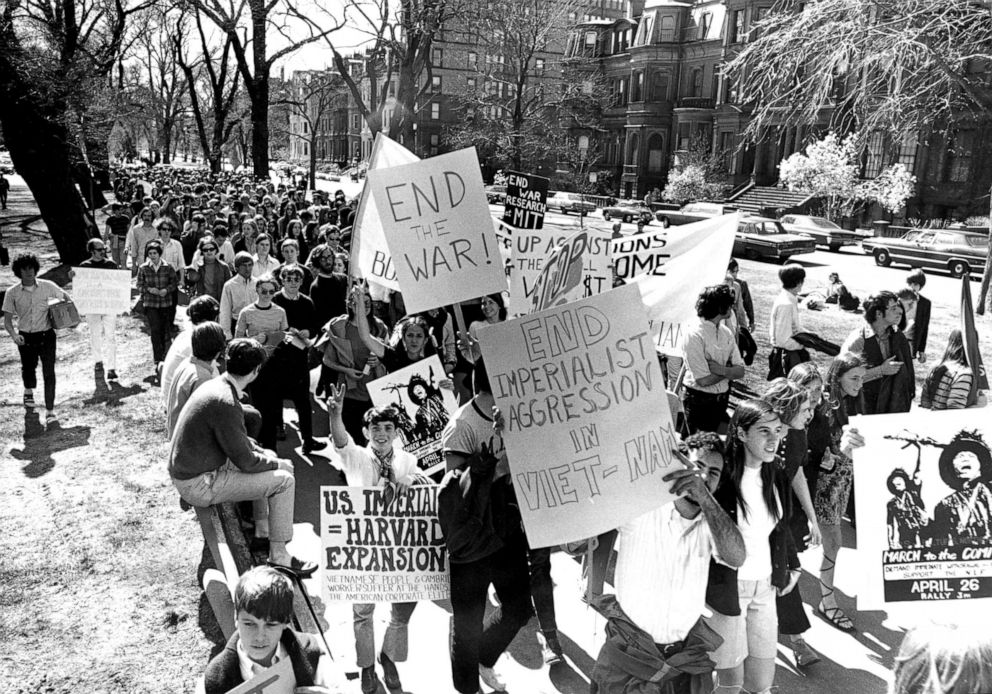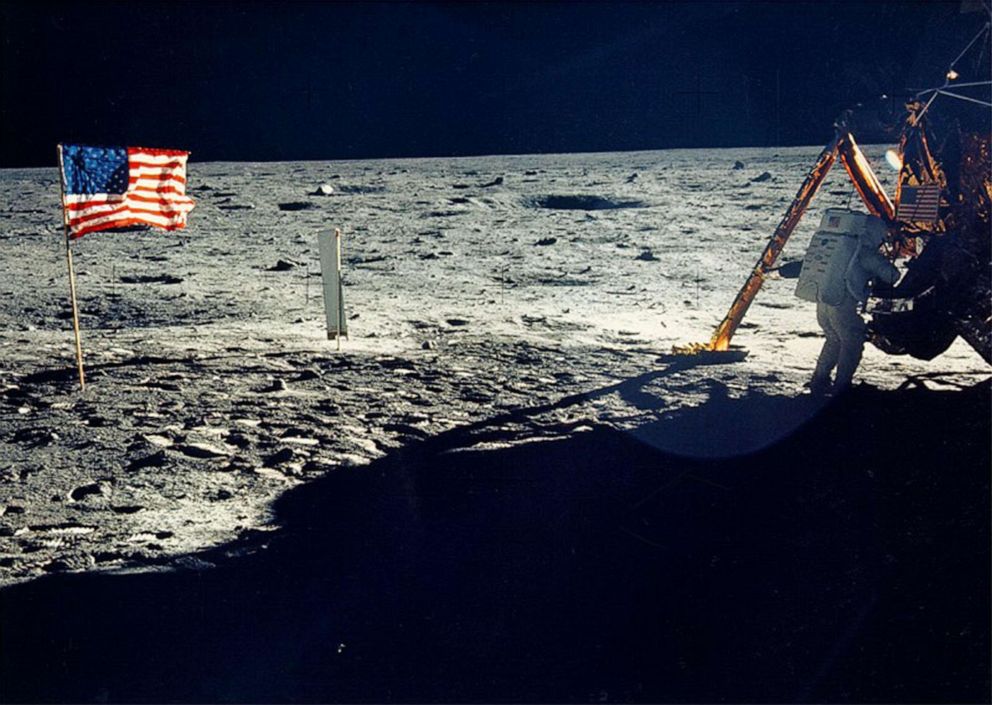50 Years Later: Historians discuss impact of Apollo 11
It all started with a declaration by a president in the midst of a cold war.
Saturday, July 20, marks the 50th anniversary of man landing on the moon. Those five decades have allowed historians to realize the impact Apollo 11 has had not just on the U.S., but on mankind.
It all started with a declaration by President John F. Kennedy in the midst of a cold war.
"We choose to go to the moon," President Kennedy famously said in 1962.

The American space program was struggling, and the Soviet Union was winning the race to space. Before the U.S. successfully reached the lunar surface, Americans watched the Soviet Union put the first satellite, Sputnik I, and humans into orbit.
"I think of it as a military mission that we had to beat the Soviets because it wasn't just for global prestige, but to show the world that democracy was a more efficient form of government than communism," said historian and author of "American Moonshot: John F. Kennedy and The Great Space Race" Douglas Brinkley.
At the time of Kennedy's speech, the U.S. didn't know how to get to the moon and didn't have a big enough rocket to reach it. The project ended up costing $25 billion dollars -- a controversial expense throughout the 1960s.
"That was a tumultuous couple of years in the late 1960s," historian and author of "Apollo's Legacy: Perspectives on the Moon Landings" Roger Launius said. "Height of Vietnam, urban unrest, civil unrest. For a very brief period of time in 1969, everybody sort of paused and paid attention to this."

It wasn't an easy feat to bring people together, but Kennedy's challenge had touched a nerve in America's psyche.
"Somewhere deep in the American DNA is this belief in pioneer spirit, frontier spirit, like cowboys and explorers, like Lewis and Clark, and space fulfilled that romanticization of the American ideal," Brinkley said. "These were space cowboys."
On July 20, 1969, that American ideal was realized and millions watched as Neil Armstrong took the "giant leap for mankind."

"Neil Armstrong is one of the most romanticized figures in American history," Brinkley said. "But he was the least romantic of men. He just was about, 'Mission accomplished,' and, 'I'm doing it for the sake of my country, for my government, for democracy.'"
For Brinkley, Apollo 11's mission was an "epic moment in civilization," but he recalls an "empty" feeling after it was complete.
"We did it and it was sort of feeling like, 'Well now what?'" Brinkley said.
The U.S. did not become a space-faring nation, but the technology that took us to the moon is now pocket-sized. Those innovations were all fueled by the program that brought man to the moon.
"NASA was the great laboratory for the modern economy of today," Brinkley said of the U.S. National Aeronautics and Space Administration (NASA). "The beginnings of the Internet began in 1969. The length between the tech revolution of the 1970's and NASA have a direct linkage and that's the world we're living in today."
Apollo 11's 50th anniversary has been widely-celebrated with events across the country -- bringing people together just like it did 50 years ago.
"Five hundred years from now if you think about the 20th century this is one of two or three of the things that you will think about," Launius said.
ABC News' Nate Luna and Christine Theodorou contributed to this report.




